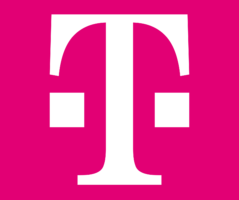UPDATE Inside Towers reported the FCC intends to open the 2.5 GHz auction for 5G wireless services bidding on July 29. The agency confirmed it will use an ascending clock format, a format favored by T-Mobile, according to New Street Research Policy Advisor Blair Levin.
Levin says T-Mobile is likely to be the major winner, because the auction “will allow the company to fix the ‘Swiss Cheese’ problem its 2.5GHz network grid is known to suffer from,” he writes in a client report. How much T-Mobile will have to spend to accomplish that goal is unknown. However, he says the Commission lowered what the final amount will be by adopting a plan to use the ascending clock format T-Mobile favors instead of a single sealed bid auction, an auction design favored by some smaller players.
The ascending clock format is generally regarded as more efficient in terms of price discovery. From T-Mobile’s perspective, it will allow the carrier to target its dollars more precisely than it could in a single round auction, notes Levin. In a single round auction, T-Mobile would need to “blindly guess” the maximum bid from others it would have to beat in each market to ensure it won the 2.5 GHz license in a specific market.
T-Mobile also won on issues including not having to disclose the details of its leases, and on a complex issue relating to the revised license inventory. In winning on these issues, T-Mobile prevailed over arguments from AT&T, Verizon, DISH and various smaller wireless providers, according to Levin.
Short-form applications for the auction are due by May 10. Shortly afterwards, the FCC will publish the list, enabling investors to see who’s potentially bidding.
However, the FCC’s current auction authority expires on September 30. FCC Chairwoman Jessica Rosenworcel and several lawmakers have urged Congress to reauthorize that authority. The FCC itself has raised questions about whether, after that date, it has authority to issue licenses for an auction, even if the auction began before that date. New Street believes the issue will be resolved to allow the 2.5GHz auction, and subsequent licensing, to proceed, but will continue to monitor the situation, notes Levin.
By Leslie Stimson, Inside Towers Washington Bureau Chief





Reader Interactions